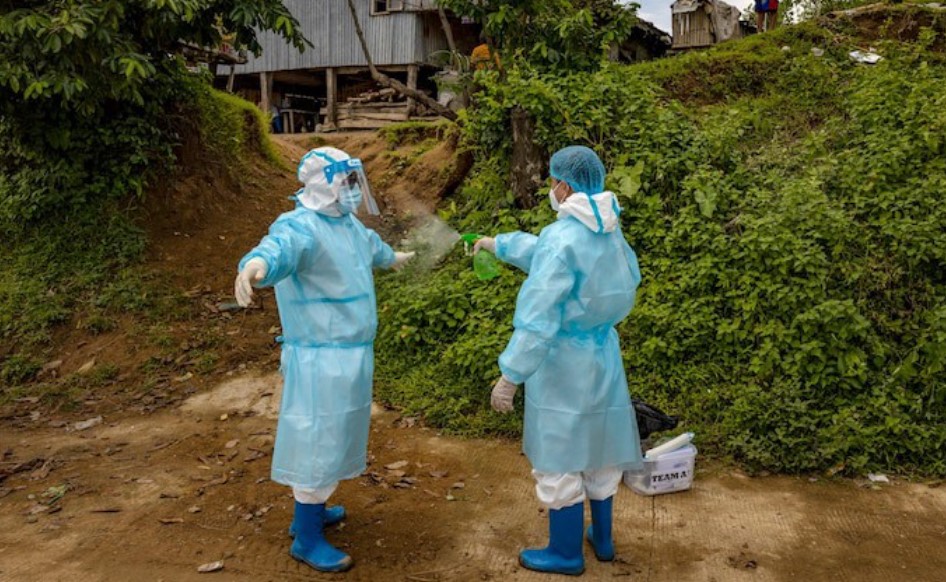There are many uphill tasks facing global health, but we must rise to meet them
The Telegraph (UK)
LIAM SMEETH
7 September 2021
These are tough times for all. In the face of Covid-19, climate change, and the effects of globalisation and urbanisation, priorities for human health are shifting and new threats are emerging.
As an international centre of excellence that leads innovative research, translates that research into improved health, and trains the next generation, the London School of Hygiene & Tropical Medicine (LSHTM) has a hugely valuable role to play in this fast-changing world.
I am enormously proud to have been appointed as director. However, I’m in no doubt of the challenges ahead for myself, LSHTM and the field of global health.
The pandemic rages on. While vaccines have changed the Covid-19 landscape for richer countries, the picture differs hugely depending on where you call home. As so often in global health, we see inequality instead of equity. Far more must be done to ensure life-saving vaccines reach the people who need them the most.
There are practical reasons why richer nations should work to ensure wider availability of vaccinations to lower income countries, including enabling simpler trade and travel, and by reducing Covid circulation which will help to reduce the risks from new variants arising.
However, such practical considerations should not cloud the compelling moral case to prioritise vaccination towards those who most need it.
And while we continue to fight this pandemic, we must prepare for the next one. The world was caught out and must never be again. My predecessor’s words of warning, ‘you don’t create a fire brigade after the fire has started’, fell on deaf ears.
… while we continue to fight this pandemic, we must prepare for the next one …
… ‘you don’t create a fire brigade after the fire has started’ …
Enhanced, collaborative global disease surveillance and in-country preparedness is vital, and the proposals for an international treaty for pandemic preparedness and response are hugely welcome.
Covid-19 clearly demonstrated the need for a co-ordinated global response which could have massively reduced the widespread damage caused to so many societies.
The Covid crisis also bears lessons for climate change, which a recent UN report confirmed is ‘unequivocal’ and ‘unprecedented’.
However, its impact on human health, and the steps we need to take to mitigate this impact, continues to be overlooked, not just for the future, but now.
The Covid crisis also bears lessons for climate change, which a recent UN report confirmed is ‘unequivocal’ and ‘unprecedented’.
Over 30 per cent of heat-related deaths over recent decades in a range of sites around the world can be attributed to climate change.
The ability of mosquitoes to transmit dengue, declining crop yields and devastating wildfires.
The evidence is there but the will is not.
Action towards a net zero economy over coming decades must be accelerated… and quickly.
Political realities will, of course, often determine the extent to which knowledge and understanding are translated into improved health.
Afghanistan provides a stark reminder of this. Over the past twenty years there has been substantial progress in strengthening healthcare systems, underpinned by knowledge and evidence of what works and what doesn’t.
We have seen dramatic improvements in maternal and infant mortality rates.
Under the new regime, we are already witnessing changes that threaten the future of healthcare in the country and the recent health gains, particularly for women and children.
Meanwhile, the UK government’s decision to massively reduce its overseas aid budget will have a devastating impact on many people around the world who were already facing enormous difficulties.
One small fragment of this aid cut — funds dedicated to research and training — will have a huge disproportionate and possibly unintended effect by eroding future progress that comes through improved knowledge and expertise.
So what are the roles of global health institutions going forward?
- We must continue to conduct impactful world-class research — innovating, adapting and working in tandem with international partners every step of the way.
- Through high-quality teaching and training we must ensure the next generation of highly-skilled scientists are equipped with the tools and mind-sets to tackle the range of global health issues we face, now and in the future.
- And we must do this while looking hard at ourselves in the mirror, facing uncomfortable truths about our own history, which in many cases, including LSHTM, has been shaped by colonialism and the patterns of racial discrimination that characterise it.
There is of course no one solution to the world’s health problems which are complex and multifaceted.
The answer to “Why are some people healthy and others not?” has — quite literally — thousands of different true answers.
In the face of such complexity, it is easy to give up; no single step will create a healthy world free of disease and suffering.
However, because there are thousands of different factors contributing to ill-health, this means there are thousands of actions we can take to improve health.
Some of these we know about — but many we do not.
Increased knowledge and understanding of the determinants of health and effective ways to intervene to improve health underpin our efforts to create a healthier world for all.
Increased knowledge and understanding of the determinants of health and effective ways to intervene to improve health underpin our efforts to create a healthier world for all.
Through high-quality research and education, and an inclusive collaborative approach, the global health community can continue to help find life-saving answers.
About the author
Liam Smeeth is Director the London School of Health & Tropical Medicine












